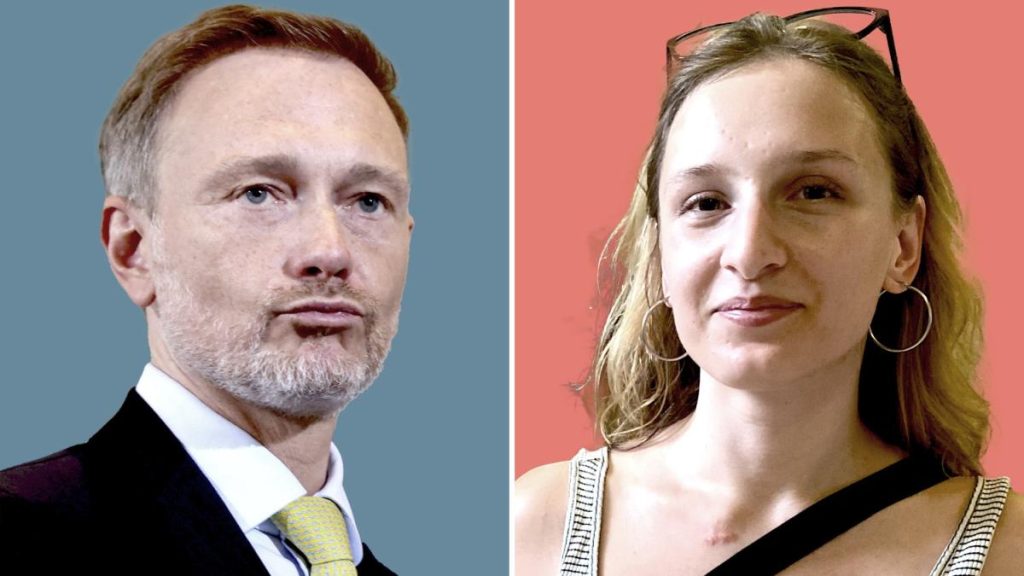The Humboldt University’s business faculty auditorium is packed for the “Humboldt Symposium” on the topic of “System in Distress,” where Bundesfinanzminister Christian Lindner and several economists discuss retirement rescue plans. The audience, mostly students, dressed in suits, shows concern about the future of pensions. The economists agree that Germans should work more and longer in the future to address the demographic challenge of a projected decline in the workforce. There is disagreement on the approach to tackle the issue, with finance minister Lindner suggesting more work is needed, while economist Oliver Ehrentraut criticizes the lack of willingness to make tough decisions in pension policies and calls for more balance in social policy.
Lindner faces criticism from the audience for his views on the need for people to work and contribute to society. When a viewer questions the concept of dignity in relation to work, Lindner defends his stance on the importance of work but acknowledges the need for better working conditions in sectors like nursing. The discussion shifts towards social policies, with Lindner emphasizing the importance of control on public spending to prioritize national defense, debt repayment, and social expenditures. The audience shows mixed reactions, with some supporting Lindner’s views on encouraging work participation, while others advocate for higher wages and more social support for those in need.
One audience member, Anna-Josephin Richter, challenges Lindner with personal experiences and criticisms on his policies, accusing him of populism and lack of empathy for marginalized groups. Richter raises concerns about the adequacy of the minimum wage and the treatment of those in need, pointing out that not everyone can work under the current conditions. Lindner defends his positions, highlighting the need for society to make choices about who it supports and the importance of controlling immigration. Despite the tensions, the event ends with various viewpoints presented and discussions on the complexities of social policies and economic realities.
Richter shares her struggles with the job market and social services, highlighting issues with the system’s lack of understanding and support for individual circumstances. She expresses frustration with the challenges she faced in finding suitable work and pursuing her interests, as well as the stigma attached to those receiving government support. Despite her criticisms, Richter remains determined to pursue a career in the social or political sector, emphasizing the need for more empathy and understanding in policy-making. Lindner leaves the event early, citing prior commitments, but the discussions continue, reflecting the ongoing debate on social welfare, work ethic, and economic policy in Germany.
The event at Humboldt University’s business faculty auditorium highlights the complex challenges facing Germany’s social and economic systems, with discussions on retirement, work participation, minimum wage, and social support. The exchange between Lindner, economists, and the audience reveals contrasting views on the role of work, dignity, and responsibility in society. As Germany navigates demographic changes and economic pressures, the need for innovative and inclusive policies becomes increasingly urgent. The event serves as a platform for diverse voices to engage in critical dialogue on the future of social welfare and economic sustainability in the country.


